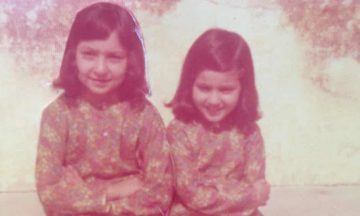Fiona Sturges in The Guardian:
 Arifa Akbar’s memoir begins with the death of her sister from a mysterious illness. Before she died in 2016, aged 45, Fauzia had already been rushed to hospital twice, the cause of her symptoms unknown. She had complained of chest pains, shortness of breath and night sweats. Her face began to swell and her lungs became inflamed, but still doctors were clueless. Later, as her speech started to slur and her behaviour became erratic, she was put in an induced coma and subsequently had a brain haemorrhage. Eventually there was a diagnosis: she had died of tuberculosis.
Arifa Akbar’s memoir begins with the death of her sister from a mysterious illness. Before she died in 2016, aged 45, Fauzia had already been rushed to hospital twice, the cause of her symptoms unknown. She had complained of chest pains, shortness of breath and night sweats. Her face began to swell and her lungs became inflamed, but still doctors were clueless. Later, as her speech started to slur and her behaviour became erratic, she was put in an induced coma and subsequently had a brain haemorrhage. Eventually there was a diagnosis: she had died of tuberculosis.
Akbar was left with questions, among them: why hadn’t Fauzia been diagnosed earlier? How, in 2016, does a person contract TB? Her sister’s death also prompted a broader reflection on her life and the ways she had been failed by others. Along with telling the story of a sibling, Consumed is also a candid dissection of family with its complex bonds and rifts, and an acute portrait of grief and mental illness. “Life brought Fauzia pain,” Akbar writes.
The eldest sibling, Fauzia was born in Pakistan shortly after her father had left for the UK to find work and start a new life. She didn’t meet him until she was one, when she and her mother first joined him in London. The child instinctively shrank from this man who was, to her, a stranger, which he took as a personal slight. Throughout her childhood, he subjected her to sustained abuse, reprimanding and taunting her, pulling her hair and often refusing to eat at the same table as her. He made no secret of the fact that her younger sister, Arifa, was the preferred daughter; his emotional cruelties towards Fauzia were, notes Akbar, “so insistent, every day and unrelenting, that they became normalised in our home”.
More here.
